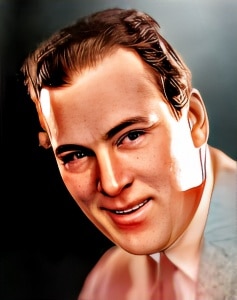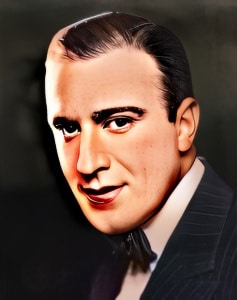 Thomas Meighan, born on April 9, 1879, in Pittsburgh, Pennsylvania, was a prominent actor in the early years of American cinema.
Thomas Meighan, born on April 9, 1879, in Pittsburgh, Pennsylvania, was a prominent actor in the early years of American cinema.
His career spanned the silent film era and extended into the transition to sound films, making him a notable figure in the world of entertainment.
In the early 20th century, silent films were the dominant form of entertainment, relying on visual storytelling and nonverbal acting to convey emotions and narratives. Thomas Meighan’s ability to excel in this medium, captivating audiences through his performances, demonstrated his remarkable acting talent.
Meighan often played leading roles in silent dramas, comedies, and character-driven films. His filmography showcased his versatility as an actor, from romantic leads to dramatic characters, and his ability to engage with a wide range of narratives.
One of the significant aspects of Meighan’s career was his collaboration with pioneering director Cecil B. DeMille. DeMille was known for his epic and visually stunning productions, and Meighan’s performances in DeMille’s films contributed to their success.
“ Male and Female” (1919), directed by Cecil B. DeMille, is one of the notable films in which Thomas Meighan played a leading role. In this ambitious production, Meighan portrayed Crichton, the resourceful butler who becomes the leader of a group of shipwrecked castaways on a deserted island. Meighan’s performance demonstrated his ability to convey complex character development and transformation, as Crichton evolves from a subservient butler to a confident and capable leader.
The transition to sound films marked a significant shift in the film industry, challenging many silent film actors to adapt to this new era. Thomas Meighan successfully made this transition, underscoring his adaptability and commitment to his craft.
One of his notable sound films was “The Racket” (1928), directed by Lewis Milestone. The film was one of the earliest gangster films and showcased Meighan’s ability to excel in a new genre. His performance added depth to the film’s narrative and contributed to its success.
Thomas Meighan’s ability to convey a wide range of emotions primarily through facial expressions and physical acting was a crucial skill in the silent film era, and his adaptability allowed him to continue his success in sound films.
Despite the passing of time and changes in the film industry, Thomas Meighan’s contributions to early cinema remain a testament to his talent and dedication as an actor. His work in the silent film era and his successful transition to sound films underscore his versatility and enduring presence in the world of cinema.
In conclusion, Thomas Meighan was a versatile actor who made significant contributions to the early years of American cinema. His ability to engage with the silent film medium and his successful transition to sound films showcased his adaptability and dedication to his craft. While his name may not be as widely recognized today as some of the leading actors of his time, his performances and contributions to the history of cinema remain a valuable part of the rich legacy of early Hollywood. Thomas Meighan’s talent, memorable roles, and enduring impact on film history make him a remarkable figure in the early days of Hollywood.
Loading live eBay listings...




